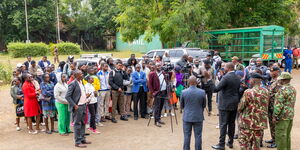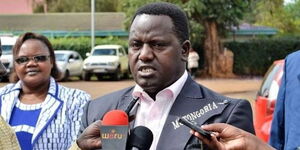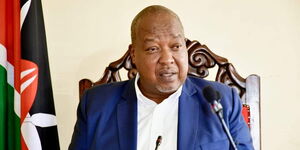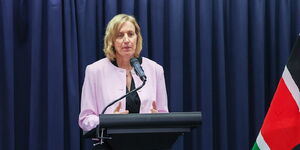The Kenya Tea Development Agency (KTDA) has refuted claims that the Ksh1.03 billion contributed by tea farmers in Kericho and Bomet counties was channelled to other projects outside the West of the Rift Valley.
In a statement on Tuesday, October 14, the agency branded the allegations, which are being pushed by some leaders from the two counties, as false and misleading.
The leaders claimed that the funds, which were contributed for the construction of two small hydropower projects, had been diverted to other projects in the East of the Rift Valley, without the consent or knowledge of farmers.
According to the agency, the money has already been utilised for the establishment of two small hydropower projects, the Chemosit Small Hydro Plant and the Kipsonoi Small Hydro Plant, under Settet Power Generation Company, which is a company owned by Seven Tea factories in Kericho and Bomet, as well as KTDA Power Company Limited.
"Settet Power Generation Company Limited was incorporated in October 2010 and is owned equally by seven tea factory companies in Kericho and Bomet Counties, namely Kapkatet, Litein, Tegat, Momul, Kapkoros, Mogogosiek, Kapset, and KTDA Power Company Limited. Each of the eight shareholders holds a 12.5% shareholding," KTDA stated.
"The company was established to develop small hydropower plants to supply reliable and affordable electricity to the factories, thereby reducing production costs and improving farmers’ earnings," it added.
The agency detailed that the funds are currently being used to pay civil work contractors, project consultants, purchase electromechanical equipment, and for land acquisition.
So far, according to the agency, Ksh1.208 billion has been spent in the two projects, with the deficit of Ksh174 million covered through internal borrowing.
"Currently, two projects are under implementation: the Chemosit Small Hydro Plant with a capacity of 2.5 megawatts and the Kipsonoi Small Hydro Plant with a capacity of 2.6 megawatts," the agency stated.
"These projects are financed on a 65:35 debt-to-equity ratio, translating to a total equity requirement of KSh 1.1 billion by the shareholders," it added.
The clarification comes days after the Ministry of Agriculture denied claims that the disparities in tea bonuses between the East and West Rift Regions were fuelled by discrimination between the regions.
In a statement on Thursday, October 9, Agriculture Principal Secretary Kipronoh Ronoh attributed the difference in tea bonuses to the difference in tea quality and cost of production in the two regions.
Last week, the agency confirmed that farmers will receive their final bonus payment by Wednesday, October 15, 2025, following the conclusion of the 2024–25 financial year.
Farmers will receive the payments directly in their bank accounts, along with the proceeds from green leaf deliveries made in September 2025.












